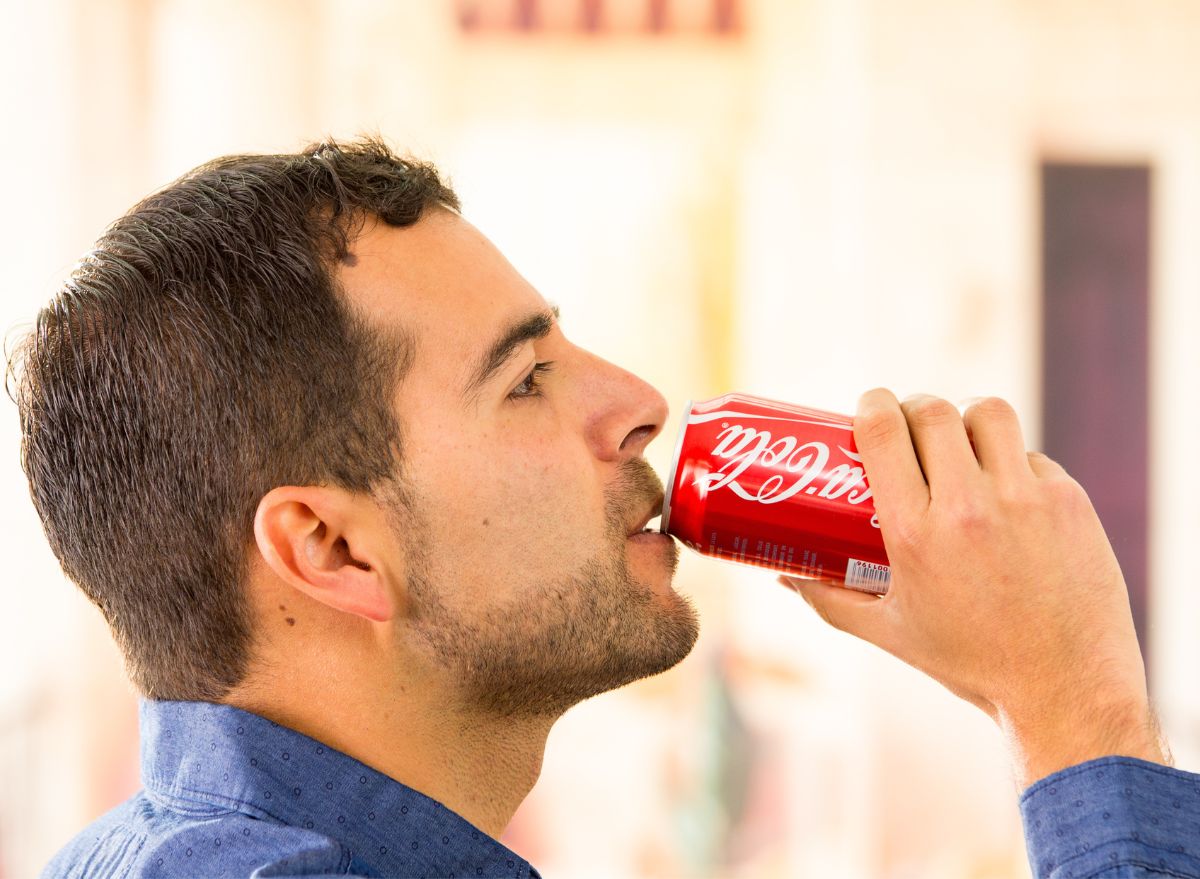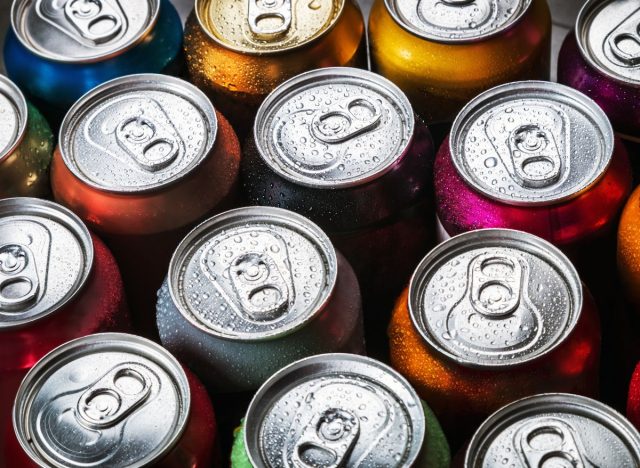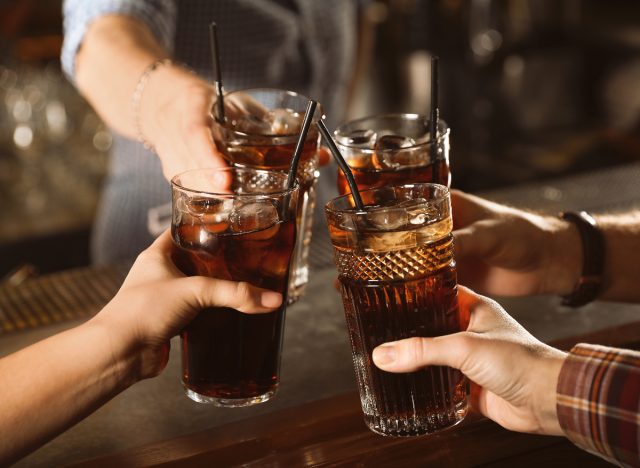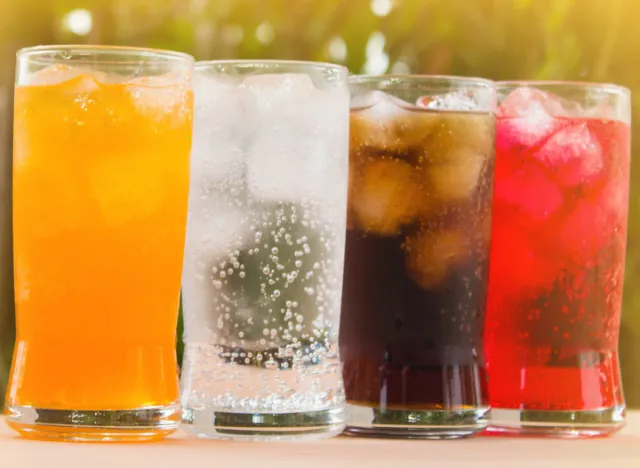Drinks With Added Sugars May Increase Hair Loss Risk for Men, New Study Says

Hair loss affects many people across the globe. But while this condition is extremely common, it can lead to many frustrations. Yes, you can try different treatments to slow down the process, or cosmetic purchases to cover up the loss itself, but ultimately, hair loss can be difficult to control. And now, researchers have found through a new study that drinking sugar-sweetened beverages may actually increase the risk of hair loss in men.
The Mayo Clinic states that there are a number of possible causes of hair loss, such as genetics, certain medications, health complications, hormonal changes, and stress. According to the National Library of Medicine, androgenetic alopecia is one of the most common types of hair loss that—although it impacts both women and men—is a more prominent issue in men; approximately 30 million women in the United States compared to 50 million men. When androgenetic alopecia occurs in men, it is also known as male-pattern hair loss (MPHL) or male-pattern baldness. However, new research published via Nutrients reveals that researchers may have found a possible link between drinking sugar-sweetened beverages—such as sodas, juices with added sugar, sports drinks, and sugary coffee drinks—and hair loss, particularly in young men.
About the study

Published on January 1, 2023, the results from this new study confirmed that there is, in fact, a possible connection between higher consumption of sugar-sweetened beverages and hair loss in young men. Researchers looked into self-reported survey results of 1028 Chinese adults from 31 different provinces, all between the ages of 18–45 years old. Of these participants, almost half (459) reported that they drank sugar-sweetened drinks more than once per day, while about 25% of them drank these beverages between four and seven times per week. Meanwhile, 18.5% consumed them only once to three times a week, and around 10% reported not consuming any sugar-sweetened beverages in the past month at all. After assessing these results, researchers found that those who had higher consumption of sugar-sweetened beverages also had a greater risk of male-patterned hair loss.
How sugary drinks are linked to hair loss

When it comes to the connection between drinking sugar-sweetened beverages and increased hair loss risk, there are estimated direct and indirect effects.
The direct effects of sugar-sweetened beverages on hair loss risk in men involve the extremely high levels of added sugar. According to the study, the larger amounts of sugar can lead to higher concentrations of serum glucose, which can create an overactive polyol pathway. This pathway is known as a place where glucose is converted to fructose, but if it’s too active, it may lead to harmful impacts on your health and risk for diabetes. The study says that symptoms of hair loss are highly suggestive of an “overactive polyol pathway.”
But this isn’t the first study to reveal a connection between high levels of sugar and hair loss. According to a 2017 study published in Trends in Food Science & Technology, there is a link between androgenetic alopecia and high-sugar, high-cholesterol diets, as well.
When it comes to more indirect connections, there are a few possibilities to consider. For one, the study mentions that high sugar consumption may often occur alongside a high-fat diet, which may be related to hair loss as well. Not only that, but there may be a link between the emotional effects of high-sugar consumption and hair loss. For example, the study cites research that says consumption of SSBs can lead to emotional problems, and that they can specifically increase a person’s risk of depression. And according to researchers, these emotional issues can lead to an increased risk of MPHL.
What this means for you

When we talked with Dr. Victor Sun, MD & Medical Consultant at SuperPill about these new research findings and their validity, Dr. Sun added that even though there are truths to these findings overall, there are a few caveats to process.
“Although the recent study suggests a correlation between sugar-sweetened beverages and hair loss, further research is needed to validate the conclusions. Due to the cross-sectional nature of the study, the complexity of confounding factors, and lack of physical exam measurements, the study is limited in its ability to determine whether sugary drinks contribute mechanistically to hair loss,” says Dr. Sun. “However, the study proposes some possible explanations if true. They posit that high sugar levels might affect biochemical pathways that contribute to androgenic alopecia. Alternatively, high sugar intake may promote mood changes or other chronic disease states which can indirectly lead to hair loss.”
Ultimately, this study’s findings may not be enough for you to throw away all of your sodas just yet. However, these results can help you decide whether or not you can benefit from limiting how much you consume on a weekly basis. If you’re a daily soda drinker who has noticed a problem with hair loss, lowering your intake may be a helpful place to start.
- Source: https://www.mayoclinic.org/diseases-conditions/hair-loss/symptoms-causes/syc-20372926#:~:text=It%20can%20be%20the%20result,most%20common%20cause%20of%20baldness.
- Source: https://medlineplus.gov/genetics/condition/androgenetic-alopecia/#frequency
- Source: https://www.mdpi.com/2072-6643/15/1/214
- Source: https://journals.plos.org/plosbiology/article?id=10.1371/journal.pbio.3001678
- Source: https://www.ncbi.nlm.nih.gov/pmc/articles/PMC5975374/
- Source: https://www.sciencedirect.com/science/article/abs/pii/S0924224421004362
- Source: https://pubmed.ncbi.nlm.nih.gov/28751637/
- Source: https://www.cambridge.org/core/journals/public-health-nutrition/article/sweetened-beverage-consumption-is-a-risk-factor-for-depressive-symptoms-among-adolescents-living-in-boston-massachusetts-usa/B2077499C4E982EAD91AA3548B2B6F14